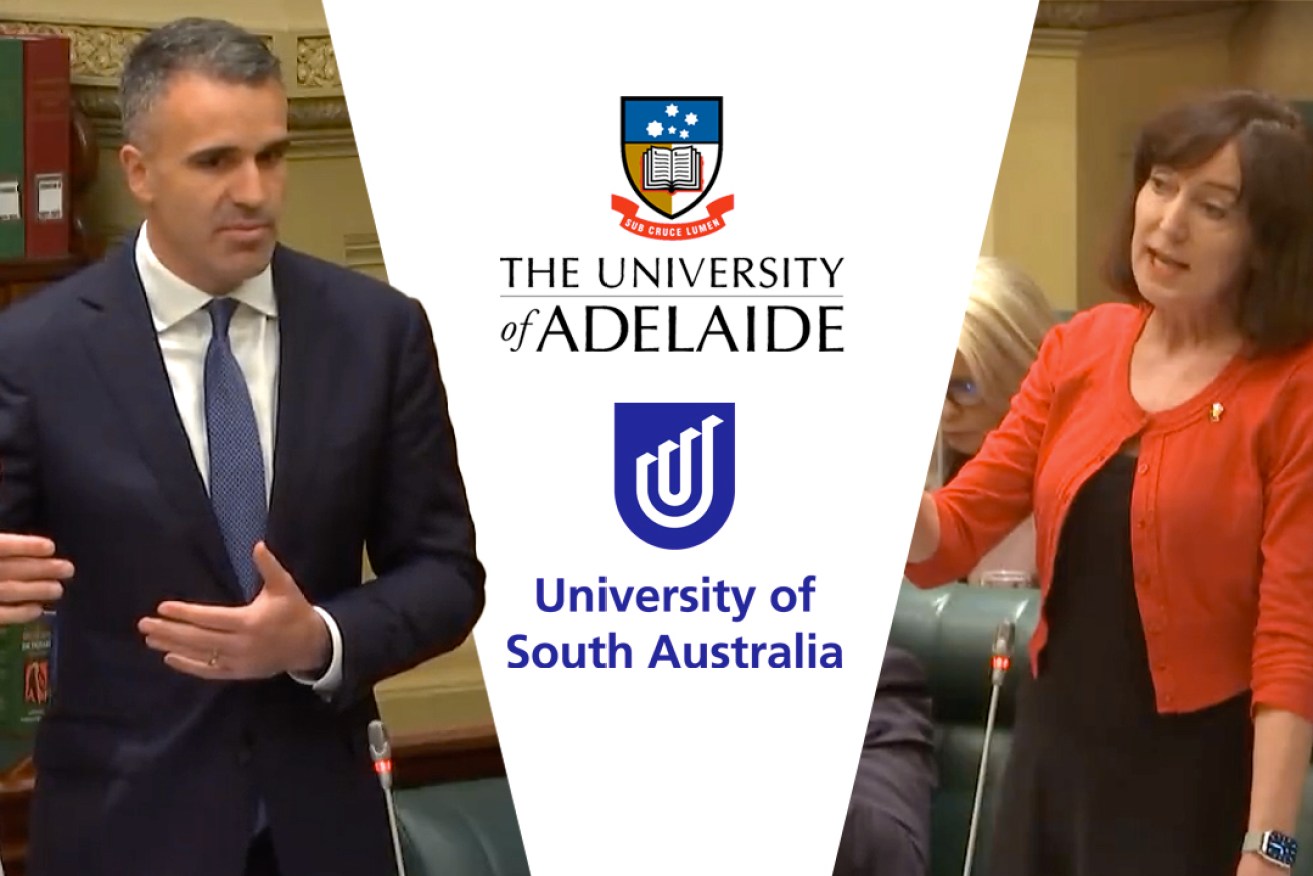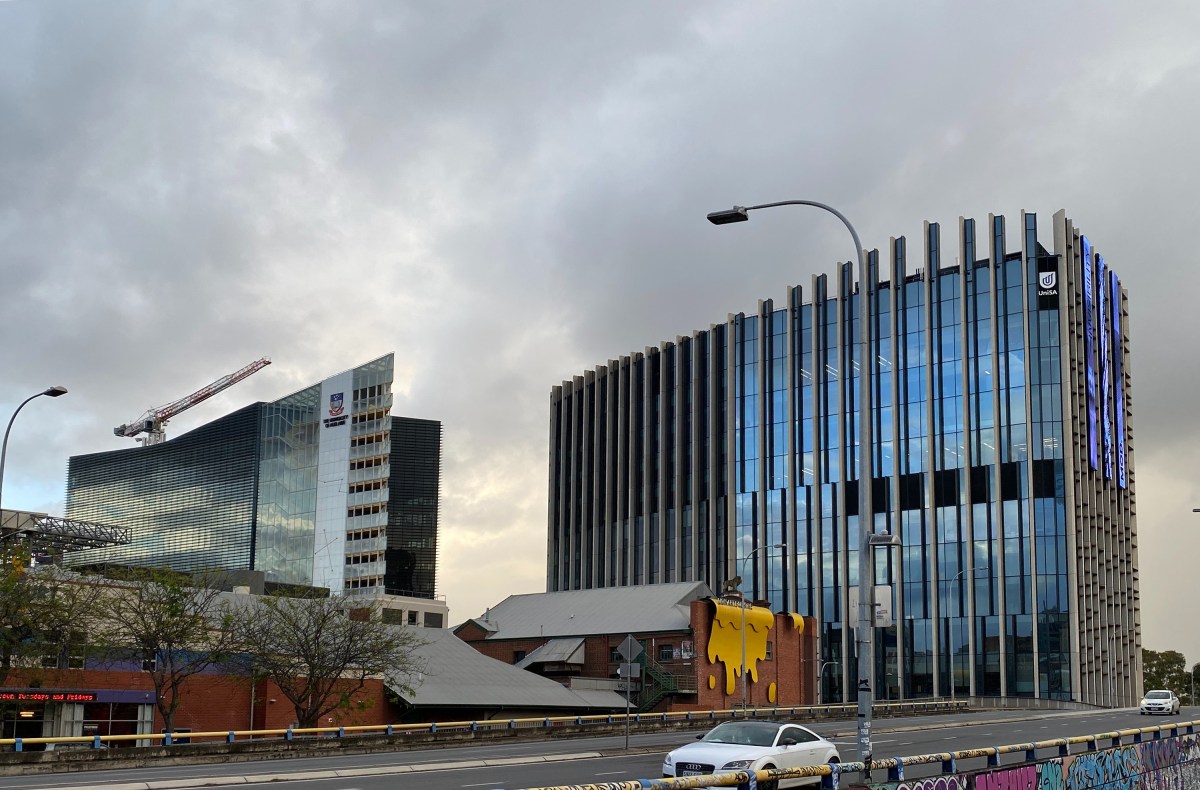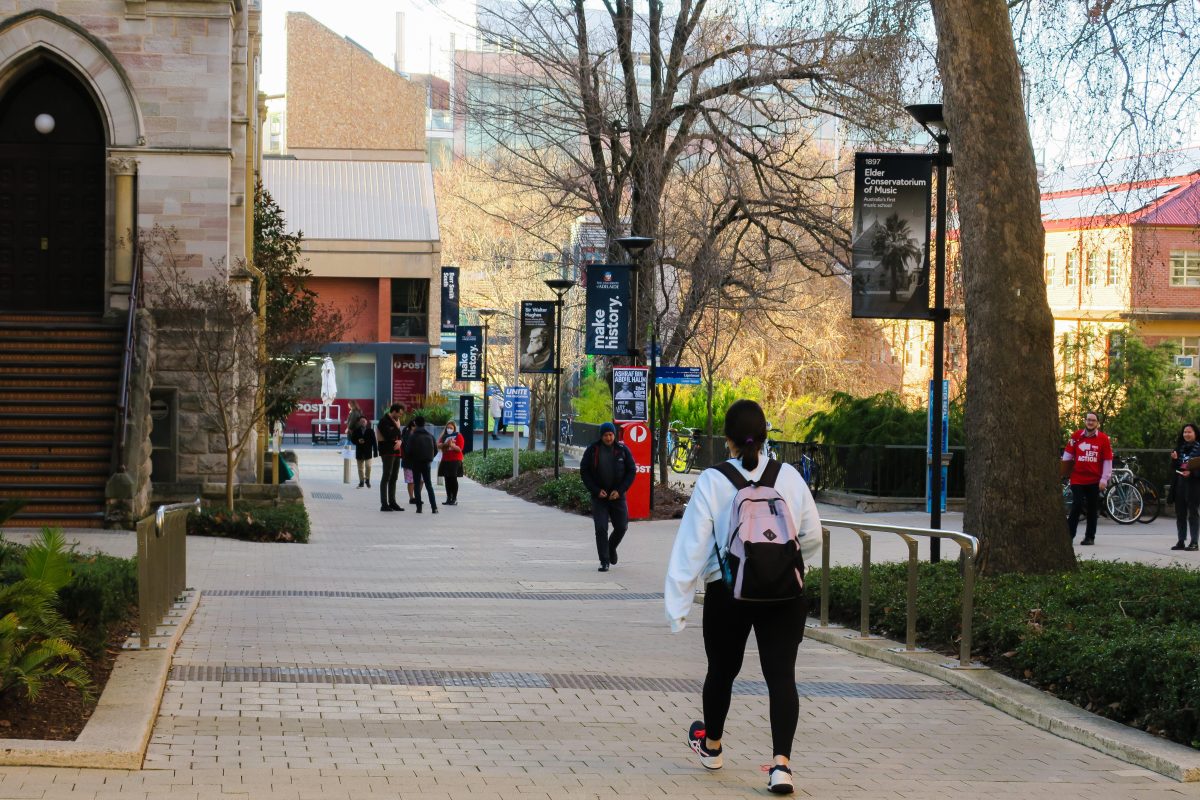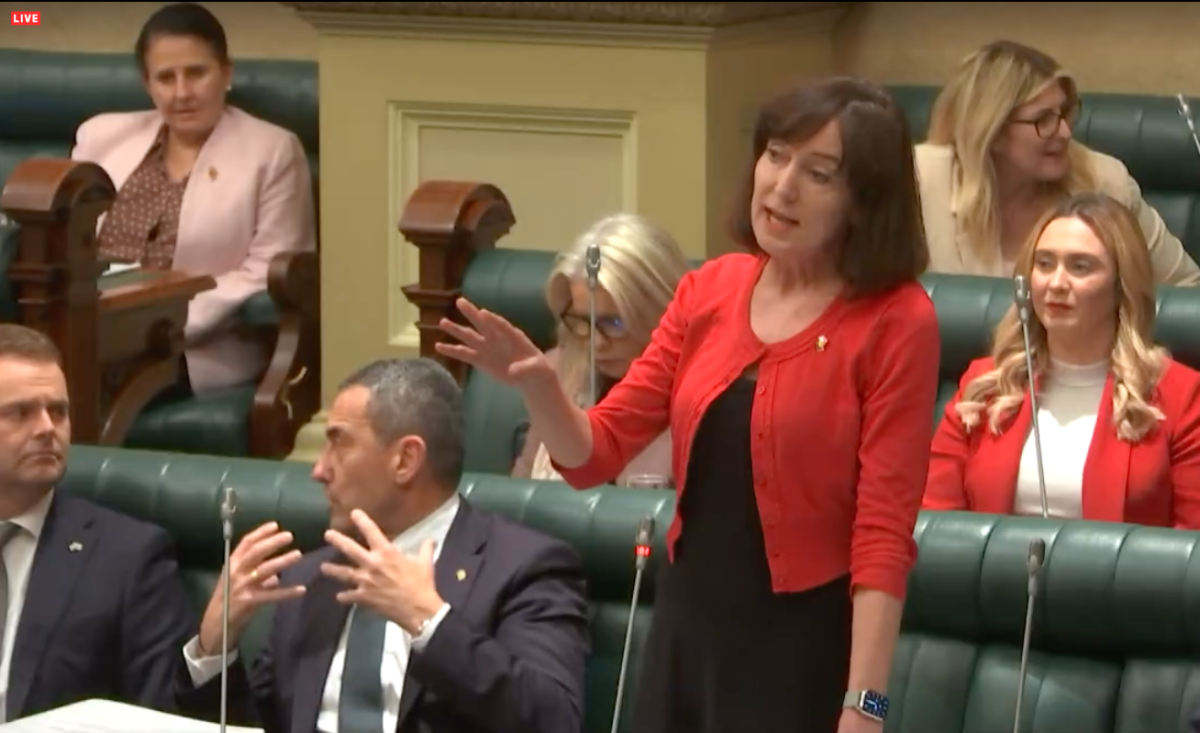‘Important test’: Premier’s message to Upper House on uni merger vote
Premier Peter Malinauskas says it would be “extraordinary” and a “holdback mentality” if Upper House MPs considered blocking a merger of the universities of Adelaide and South Australia if approved this weekend, while the Deputy Premier says university staff concerns about the process are “misplaced” and “not significantly held”.


Premier Peter Malinauskas and Deputy Premier Susan Close strongly defended the government's university merger policy in parliament yesterday. Images: SA Parliament livestream
The Opposition used parliamentary question time on Wednesday to interrogate the Malinauskas Government on its push to merge the University of Adelaide and University of South Australia, ahead of a final amalgamation decision from the two institutions expected to be announced this weekend.
The Malinauskas Government made an election promise to pursue the merger and the Premier has vowed to “make” it happen regardless of whether the respective university councils approve it.
“It is all… too well known that in this state we have actively contemplated the university amalgamation question over decades,” Malinauskas told parliament on Wednesday.
“All too often that can has been kicked down the road often for reasons that aren’t consistent with the state’s interests.
“This government will not abide that. We are determined to pursue this policy and we look forward to an outcome in the not-too-distant future.”
If the university councils don’t agree on a merger, the government is likely to re-establish a commission of inquiry to investigate the best path towards amalgamation.
But it will still need to pass legislation through parliament to establish a new public university, with InDaily reporting on Wednesday that the Upper House crossbench is currently opposed while the Liberal Party won’t give the government a “blank cheque” to pursue amalgamation.
Malinauskas said if the universities support the merger, it would be “extraordinary” for MPs to consider opposing legislation for a new institution.
“(The legislation) will be… an important test for everybody in this parliament,” the Premier said.
“An important test of whether or not we are committed to making the bold decisions into the future that set the state up for the long term.
“Or whether or not we’re going to only contemplate the sort of holdback mentality that could deprive a new institution being formed in the way they both want.
“That would be an extraordinary thing for people in this place to actively consider doing.”
In other developments over the last 24 hours:
- Malinauskas said the government wouldn’t independently review the universities’ business case and feasibility studies for a merger, saying “they are matters for the universities themselves”.
- Treasurer Stephen Mullighan said the state budget was constructed to ensure there is “sufficient room” for a government contribution to a merger.
- In an opinion piece published by InDaily today, Deputy Premier Susan Close said South Australia “will regret a wasted opportunity in the decades to come” if it doesn’t pursue amalgamation.
- Close also told parliament that university staff concerns were “misplaced” and not “significantly held”, criticising a National Tertiary Education Union (NTEU) survey of staff opinions on the merger as “self-selecting”.
- NTEU SA division secretary Andrew Miller responded that Close’s comments are “not only outrageous but borderline contemptuous of stakeholder concerns”.
The University of Adelaide and UniSA reached an agreement in December outlining a governance structure and January 2026 start date for a newly-merged merged university.
They revealed at the time the proposed entity would be called “Adelaide University”, subject to a business case, feasibility assessment and relevant approvals.

Merging the University of Adelaide and University of South Australia would immediately create one of Australia’s largest universities by student numbers. Photo: Tony Lewis/InDaily
The feasibility assessments covered 14 different areas and are being presented to the two university councils this week for consideration, the two universities said on Monday.
Opposition leader David Speirs asked the Premier in parliament whether he would “commit to initiating an independent review of those cost benefit analysis and business cases”.
Malinauskas replied: “No, they are matters for the universities themselves… that is not work that is owned by the government.”
The last six months of work on the business case and feasibility assessments has been led by the universities, Malinauskas said, although there has been “engagement” with the state government “given that we have a substantial interest in the policy outcome”.
“It is important that each university council forms of view consistent with the best interests of those institutions individually,” the Premier said.
“But it’s also important and I think appropriate that those institutions think about the long-term interests of the state as a whole, which is our only consideration in terms of government.”
The Premier said the objective of the merger is to increase the research volume of the two universities and improve accessibility to higher education in South Australia.
“In order to pursue both of those things… size does matter,” he said, adding that the top ranked Australian universities in this week’s QS rankings were research-intensive institutions.
The Malinauskas Government has offered the universities a yet-to-be-disclosed financial contribution if they agree to amalgamate.

Students at the University of Adelaide. Photo: Jason Katsaras/InDaily
The Opposition asked Treasurer Stephen Mullighan if a specific funding amount has been set aside after no details were provided in this month’s state budget.
Mullighan replied: “In putting the budget together, we’ve ensured that the budget settings have got sufficient room to make a contribution to the universities in the event that they should agree amongst themselves to pursue a merger.
“We would only provide that support on the basis that a) they… both resolve that it was in their interests and that we could be confident our support would deliver the aims of a merged institution.
“Given that it’s only a potential outcome not a foregone conclusion, we have not set out a particular quantum of funding for that purpose.”
University staff concerns ‘misplaced’: Deputy Premier

Deputy Premier Susan Close touting the benefits of a uni merger on Wednesday. Photo: SA Parliament live stream.
Meanwhile, Deputy Premier Susan Close has claimed that university staff concerns about a merger are “not significantly held” and has criticised the methodology of a union survey which indicated a lack of staff support.
The NTEU earlier this month released results of a survey of 1100 staff from South Australia’s three public universities, revealing only 25 per cent support for the merger among respondents.
It also found only 21 per cent were “confident the proposal will result in better education” and just 29 per cent were “confident the merger results in better research”.
The Opposition highlighted the survey in parliament on Wednesday after earlier this week accusing the government of a “botched” consultation process.
But Close said the NTEU’s survey only represented 10 per cent of staff across South Australia’s public universities, with 20 per cent of respondents from Flinders University who are not involved in merger talks.
“Now I’m not at that point dismissing the feedback, the legitimate feedback, from those staff who did choose to participate in the survey,” she told parliament.
“But let’s understand that this is a self-selecting response – this isn’t a random survey of 10 per cent of staff across three universities, it is a survey to which 90 per cent of staff chose not to respond.
“Nonetheless, clearly, there is a small number of people who are involved in the two universities which are currently working through a feasibility study process who have some concerns. I understand that.”
The two universities’ consultation with staff, students and graduates on the merger generated only 800 responses – fewer than the union’s survey. The institutions are preparing a series of staff “town halls” next month to consult on their merger decision.
Close, who holds the industry, innovation and science ministerial portfolio, said she would continue to discuss a merger with staff.
“I understand this degree of anxiety and concern – I believe it to be misplaced,” she said.
She later added: “To return to the nub of the question about the anxiety, I have responded in detail to the NTEU. I will continue to discuss with the staff.
“I think it’s misplaced, and I don’t think it’s significantly held.”
In response to Close’s criticisms, NTEU SA branch secretary Andrew Miller said it was “legitimate” to include Flinders University in its staff survey as they “will be directly affected by the establishment of a mega-university down the road”.
He also called on Labor to provide evidence the merger will provide better education, research and community engagement outcomes, asking “where is Labor’s survey and consultation?”.
“The Deputy Premier’s comments dismissing staff concerns are not only outrageous but borderline contemptuous of stakeholder concerns,” Miller told InDaily.
“No wonder staff feel alienated from the process when their views are so fundamentally dismissed and cast aside by the very people insisting the merger take place.
“This is Labor’s merger and Labor’s policy – and they must own it.”




